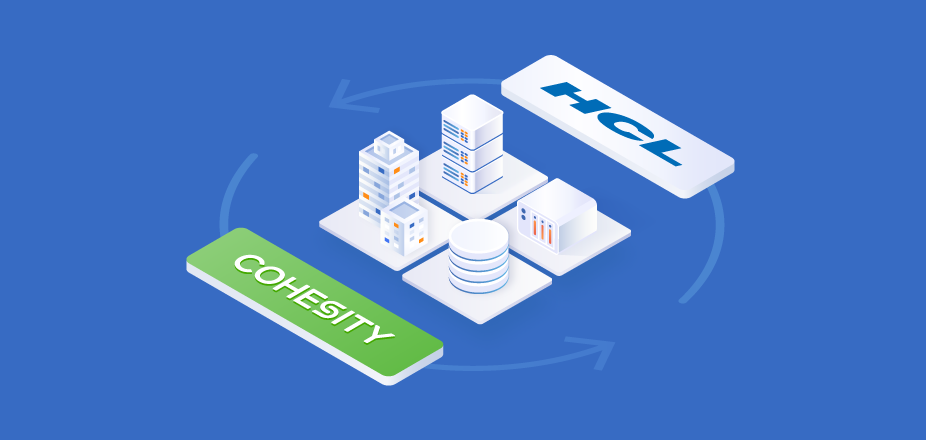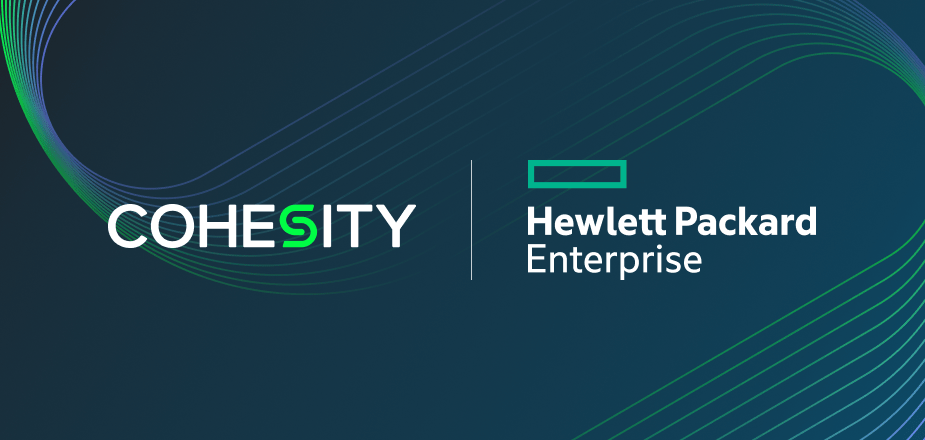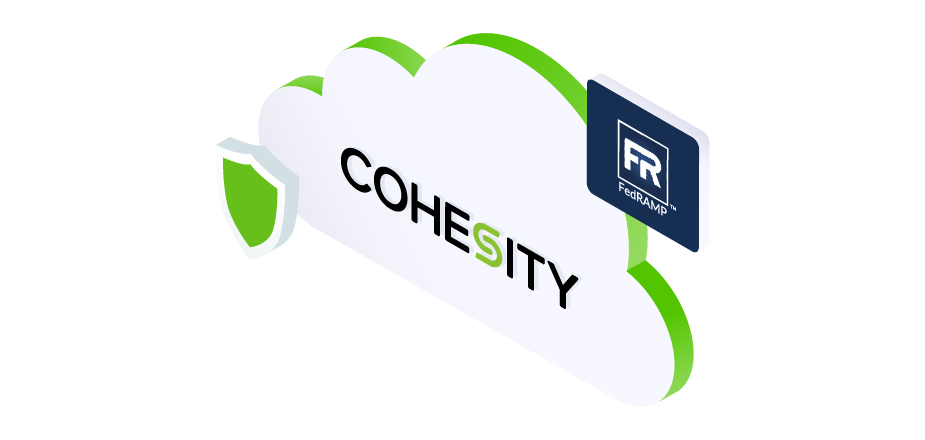In much of what’s been written about digital transformation — particularly as it accelerated in response to businesses navigating the pandemic — what’s often been overlooked is the role data plays. The significance of data lies not only in enabling transformation, but also as a by-product of it. Businesses generate massive amounts of data as they grow and transform. Hence, it becomes imperative for them to manage and protect this data in new, innovative and better ways.
Together, HCL Technologies and Cohesity are teaming up to improve enterprise business transformation through data management.
Cloud and Data Silos Challenge Enterprises
Today’s enterprise business transformation is driven primarily by cloud adoption. By moving systems to the cloud, enterprises enjoy a slew of benefits. They can support new business models, as retailers and restaurants did when physical locations closed. And by operating in the cloud, companies can adapt more quickly, easily adding services for customers and employees while accelerating time-to-market.
All this cloud-first thinking has been truly transformational, but it has also ushered in fresh concerns about data that need to be addressed if business gains are going to stick. Increased cloud adoption can lead to data fragmentation. After all, multiple clouds mean multiple systems in multiple locations generating and storing data. For all the benefits of a new cloud model, old-fashioned data silos can be hard (and costly) to manage, analyze, and protect.
As per the latest report by Everest Group in partnership with HCL Technologies and Cohesity, Driving Enterprise Business Transformation with Next-Generation Data, 60% of enterprises believe that data in silos across the organization is one of the top three challenges that affect their ability to scale digital and analytics initiatives. In addition, almost half of respondent organizations agree that ineffective or unplanned data management challenges threaten their cloud transformation efforts. Effective data management can play a key role in boosting cloud strategies.
The Need for Next-Generation Data Management
Many organizations today rely on siloed products that provide pieces and parts of a comprehensive data management solution, including backup and recovery, file and object services, dev/test, analytics, and ransomware recovery. But today’s Cloud Smart business transformation requires a new generation of data management that brings these solutions together, helps reduce mass data fragmentation, and enables companies to do more with data.
How do we know? Let’s start with one of the most visible risks of unmanaged data in a cloud-driven world— ransomware. By some estimates, ransomware threats are up more than 1,000%. This shouldn’t come as a surprise. Fragmented data caused by cloud transformation has exposed many more data sources for bad actors to exploit. Legacy data management solutions weren’t built to protect such distributed data.
But addressing security is just one of the data requirements companies face as they move to the cloud. The recent Everest Group report explains that businesses also need more effective data management to better handle information through its useful life cycle, address security and compliance requirements (e.g., GDPR, etc.), exploit growing data stores to improve analysis and decision-making, and ensure continuity of operations.
“End-to-end information management is becoming a critical requirement for enterprises to reduce costs and business risks,” Everest Group researchers said. In fact, as the pandemic begins to recede and businesses survey their transformation efforts, Everest Group research confirmed the following:
- Half of the respondent enterprises said data security and compliance would be among their top three priorities in “the next normal.”
- Roughly 60% of the respondents revealed that having data in silos has hindered their ability to scale up their analytics capabilities.
- 70% of the respondents stated that if they knew before the pandemic what they know now, they’d focus more on continuity planning.
To address these challenges and others, businesses undergoing digital, cloud-first transformation, must manage data differently. As Everest Group put it, “Next-generation data management will help them gain tangible business outcomes including operational and cost efficiencies in the short-term and manage future priorities as the scale of data generated rises.”
Key Benefits of Next-Gen Data Management
Next-generation data management describes a combination of technology and services, powered by artificial intelligence (AI) insights, for enabling resilience, simplicity, and zero-trust security across hybrid and multicloud environments — the same environments so critical to digital transformation.
For example, next-gen data management operates across clouds so businesses can see and control their data from a single UI. It uses built-in machine learning techniques that are designed to help detect threats to data and thwart ransomware attacks, minimizing downtime. And it works with other solutions for added security, third-party analytics, and integrating new workflows.
In evaluating the benefits of next-generation data management, the Everest Group found they fall into four key buckets:
- Better data security and governance
- Lower total cost of ownership (TCO)
- Detection of ransomware attacks
- Reduced downtime with fewer outages
So, having embraced cloud-first business transformation and realized the accompanying need for next-generation data management, the next challenge is tackling both at the same time. Hence Cohesity and HCL have partnered to provide customer-centric data management services. By combining HCL’s Cloud Smart frameworks with Cohesity’s next-gen data management solutions, businesses can migrate to the cloud more easily, maximize their cloud investments, and simplify data management and security across whatever environments they choose.
Among the combined solutions is HCL Velocity, powered by Cohesity. It is a software-defined hybrid cloud solution framework for deployment across hybrid and multicloud environments with built-in data protection, including backup and recovery. The two companies have also partnered on HCL Infonomics, powered by Cohesity, a platform of services for managing data silos and centralizing data protection, access, and control.
Business transformation and next-gen data management are the foundations of tomorrow. If enterprises can adopt both effectively through integrated solutions, they’ll be able to maximize their efforts.
Assess Your Data Management Needs
Business transformation is challenging enough. Assessing whether your enterprise would also benefit from next-generation data management takes extra introspection.
After talking to hundreds of businesses about their cloud transformation and data management challenges, the Everest Group created a decision matrix of seven common statements to help evaluate an organization’s readiness for next-gen data management (e.g., “We do not have a failover blueprint for cloud-native or hybrid cloud applications.”). If a business agrees with just three statements about its current situation, Everest Group maintains that it will benefit from next-gen data management.
Cloud adoption isn’t slowing down. That means data challenges can only grow. Download Everest Group’s “Business Transformation through Next-Gen Data Management” to gauge your organization’s data management posture today.


















%20M365%20Exchange%20Online%20Reality%20Check%20%7C%20Cohesity&_biz_n=3&rnd=174323&cdn_o=a&_biz_z=1743823457766)

